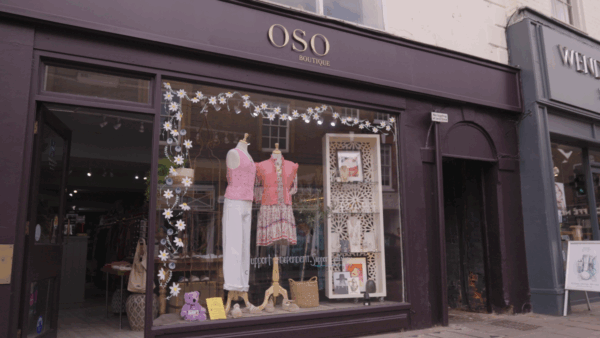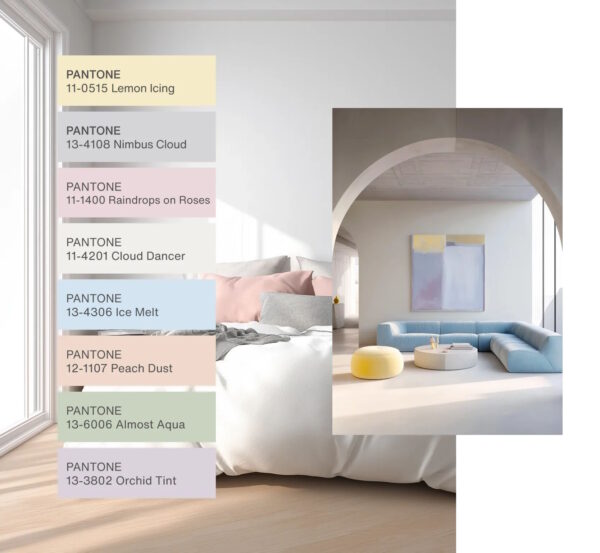 Alan Monahan writes: The Black Friday phenomenon is almost upon us once again, with the clock ticking down to what has been described as ‘Britain’s biggest shopping day’ – November 23rd. It’s reckoned that a total of £4.75 billion will be spent by UK consumers, with 47% of that in online purchases.
Alan Monahan writes: The Black Friday phenomenon is almost upon us once again, with the clock ticking down to what has been described as ‘Britain’s biggest shopping day’ – November 23rd. It’s reckoned that a total of £4.75 billion will be spent by UK consumers, with 47% of that in online purchases.
I’m not advocating that you shouldn’t try to garner a few crumbs from the cake if you’re a small, independent retailer. However, you might consider that this imported promotion isn’t worth worrying about and is best left to bigger players with greater resources, leaving you to put the maximum effort into getting Christmas right.
Those retailers planning to capitalise on the de facto start of the festive shopping season need to be ready to meet Black Friday demand. As digital commerce consultancy Salmon warns, ‘If you fail to prepare, then prepare to fail’.
As a nation we’re not overly sure that Black Friday really does deliver the best deals. A survey of 2,000 consumers reveals that despite impressive sales figures, more than half of those spoken to are unconvinced that the discounts offered are particularly attractive compared to the rest of the year.
But according to the Salmon research, that won’t stop nearly a quarter of consumers (22%) bringing forward their Christmas shopping to Black Friday. That number rises to 24% for Londoners, while it dives to a lowly 8% in Norwich. The biggest age group category is 16-24 year olds – with 28% looking to shop for Christmas during the period.
And although it was found that many retailers now claim Black Friday to be, overwhelmingly, their busiest peak period, only 22% of respondents said that it was their biggest shopping day of the year, while 55% disagreed!
The survey discovered that of those who intended to make a purchase on the day, the average spend will be £90. Men are due to splash out 34% more overall than women who, marginally, plan to do more of their shopping online.
Unsurprisingly, almost half the consumers Salmon spoke to are most likely to purchase from Amazon on Black Friday (48%). The figure rises to 59% for 45-54 year olds. Compare this with eBay at 8% or online retailers such as John Lewis, JD Sports and Debenhams (15%) or through the website of a specific brand (7%).
And there’s not much of a gender divide when shopping on Amazon, with 49% identifying as male and 46% as female.
Perhaps the biggest callout goes to those intending to do their Black Friday shopping in-store – a lowly 12%, although Salmon says this should be viewed in the context of the value of items purchased,
As someone who only uses Alexa for music, I felt a little smug on discovering that smart assistants will struggle to find their voice on the fourth Friday of November. Half of those people spoken to said they wouldn’t shop via voice because they can’t see the product. And 28% pointed to a fear factor as the reason not to shop that way, while 22% would be more likely to do so if there were exclusive offers communicated through voice assistants.
A quarter of us would consider using a voice assistant to purchase online in the future, while a deeper dive by Salmon revealed that 35% would buy entertainment products such as music, video games and movies via voice. This contrasts with 26% who would buy a luxury item via voice – perhaps, as Salmon says, not so surprising for a sector where the end-to-end shopper journey – one befitting a luxury experience – is still vital.
Me? I won’t be looking for special internet offers on Black Friday. I’m not saying that to ingratiate myself with those of you who only have bricks and mortar stores. But I have enough online problems with my VAT returns and power providers without subjecting myself to the pain inflicted when websites crash on November 23rd.
Good luck if you’re buying or selling on that particularly day.
The British Independent Retailers Association (bira) has been busting a gut in its quest for a better deal on business rates and should be proud of what it has helped to achieve. But its statement released after the Budget was tinged with regret.
I was reminded of the old Rolling Stones track, You Can’t Always Get What You Want, which features the lines:
But if you try sometimes you might find You get what you need
Well, bira didn’t get everything it wanted, but lots of retailers are getting what they needed. Business rates are being reduced by up to a third for businesses with a rateable value of £51,000 or below. That’s welcome news for the high street as the current threshold of £12,000 only helps the smallest shops.
Bira is right to call for a more detailed and quick Government response on how the reduction is going to be implemented. But it must insist – not hope – that those in Westminster continue to work with the sector to ensure that this policy is effectively rolled out and benefits those it is meant to.
Bira still believes that removing the threshold and introducing an allowance would achieve this effectively – a proposal it officially launched in the House of Commons in September.
However, it acknowledges that the rates reduction is a positive move by the Government and also welcomes its proposal to establish a £675 million fund to help rejuvenate high streets to help them adjust to the future needs of shoppers.
Andrew Goodacre, bira’s CEO, points out that 16 shops closed each day in 2017. He adds: ‘This fund must be used to bring people back to the high street by addressing parking, public transport and planning issues. People’s shopping behaviours are changing quickly and high streets need to change accordingly by incorporating a vibrant and diversified mix of retail, leisure, services and residential uses.’
I, for one, will be looking to bira and other trade bodies to play their part in trying to ensure that retail is fairly represented in any rejuvenation plan.
Meanwhile, Helen Dickinson OBE, Chief Executive of the British Retail Consortium, said: “While we welcome measures to assist smaller retailers, the majority of the UK’s 3.1 million retail workers are employed in businesses that will not benefit from today’s business rates announcement…Retailers welcome the measures announced by the Treasury to invest new funding to boost high streets and town centres and facilitate re-invention to modern and diverse destinations.”

















